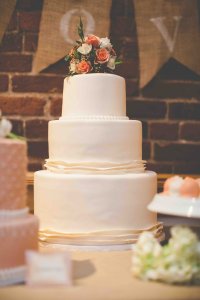Supreme Court Divided Over Cake Case
January 19th, 2018

A bakery owner refused to make a cake for a same-sex couple due to his religious beliefs.
The Supreme Court of the United States appears to be divided on a case concerning the refusal by a Colorado bakery to design a wedding cake for same sex couples. During the hearing of the cake case before the Supreme Court, the justices asked specific and probing questions of legal counsel on each side.
Different Perspectives from the Justices
Each justice emphasized that the case has the potential to affect how all merchants conduct their business operations.
The more liberal justices have taken the perspective that the bakery cannot refuse to provide services to LGBTQ couples, while the more conservative judges have taken the approach that the religious rights of the bakery owner should be respected.
The conservative judges have analyzed comments made by a civil rights commissioner who said that using religion for discriminatory purposes was “despicable.”
Justice Kennedy, however, has taken a middle of the road approach and suggested that a company that wants to not sell wedding cakes to LGBTQ individuals should be required to post signs.
The Case’s History
At this point in the case, the LGBT couple has won before the Colorado Civil Rights Commission and the Colorado State Court of Appeals. Colorado is just one of 20 states that includes sexual orientation in its anti-discrimination laws.
The Supreme Court has previously heard two other cases concerning same sex marriage. In 2013, the Supreme Court ruled that the federal government was required to recognize LGBT marriage in the dozen states that had legalized this type of marriage. Then, in 2015, the Supreme Court ruled that same sex marriage was legal in every state as state bans on it violated the Due Process and Equal Protection Clauses of the 14th Amendment to the United States Constitution.
The Role of the 14th Amendment
How this cake case is decided will depend much on interpretation of the Equal Protection Clause and the Due Process Clause, both of which were created to protect the rights of recently emancipated slaves. The 14th Amendment prohibits states from creating or enforcing any law that impacts the rights of citizens of the United States. This case presents the question of whether individuals who identify as LGBTQ are able to interfere with the rights of others to practice their religious beliefs, even if those believes include discriminating on the basis of sexual orientation and gender identity. This conflict is even more complicated because the 14th Amendment does not require that businesses not operate in a discriminatory manner.
Potential Impact of the Case
The cake case has the potential to change the lives of many individuals. For LGBTQ individuals, it could result in denial of medical services due to the religious preferences of the medical provider. More than LGBTQ people, however, will be affected by the outcome of the case. The potential ruling in the case could be used by companies to refuse service to any person who has non-traditional religious beliefs.
The Universal Life Church’s blog strives to keep readers updated about the various developments in the struggle for rights by individuals who identify as LGBTQ. By reading our blog, you can remain up-to-date with the most significant developments in the field of LGBTQ rights.
(image courtesy of Marcie Douglass)


